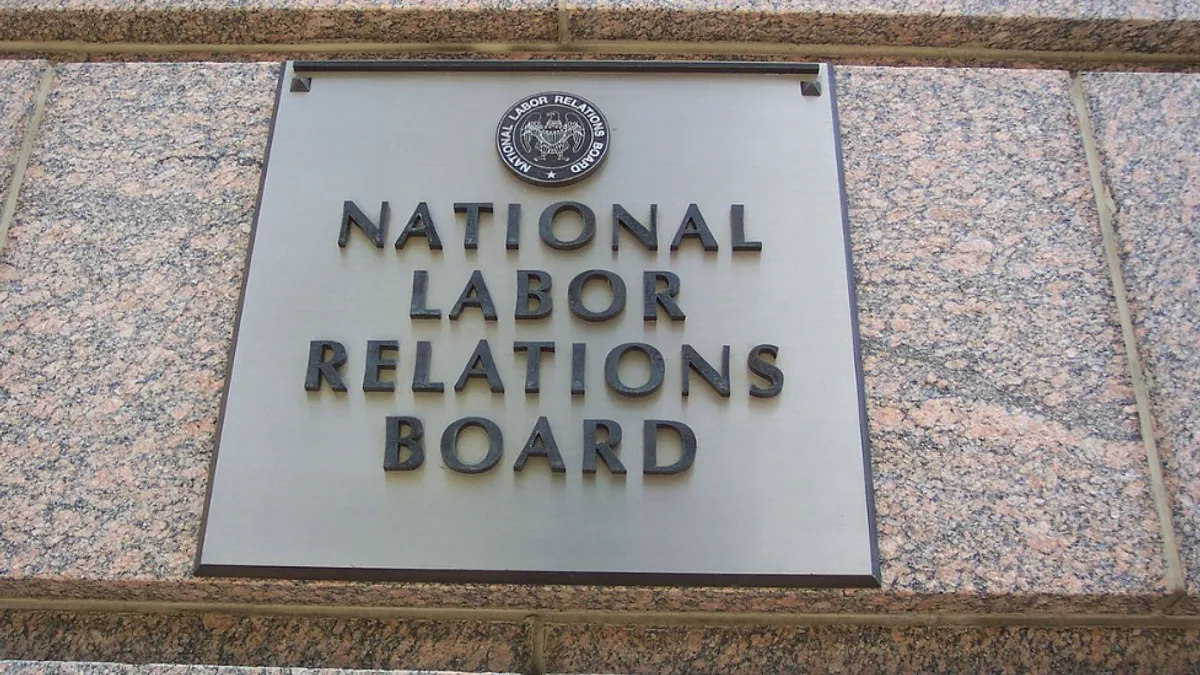Dive Brief:
- Judge J. Campbell Barker of the U.S. District Court for the Eastern District of Texas vacated the National Labor Relations Board’s joint employer rule late Friday. The rule was set to go into effect Monday.
- The new rule would be “contrary to law” and “arbitrary and capricious,” Barker ruled. The court had been considering a legal challenge brought in November by the U.S. Chamber of Commerce, along with other business groups.
- Federal agencies and employers now await a possible court decision on the U.S. Department of Labor’s independent contractor rule, also set to go in effect Monday.
Dive Insight:
Published in October, the National Labor Relations Board’s joint employer rule updated the standards by which two entities are determined to be joint employers. While initially expected to go into effect in December, the rule’s effective date had been delayed twice.
The rule specified that an entity may be considered a joint employer of another entity’s’ employees if the two share or codetermine essential terms and conditions of employment.
Per the now vacated rule, essential terms and conditions of employment include wages, benefits and other compensation; hours of work and scheduling; assignment of duties; supervision and performance of duties; work rules and directions governing the manner, means and methods of performance, as well as grounds for discipline; tenure of employment; and working conditions related to safety and health of employees.
In a previous statement from the board, Lauren McFerran, NLRB chairman, said the new rule would have represented a “legally correct return to common-law principles” and a “practical approach” to ensuring employers respect their bargaining obligations under the National Labor Relations Act.
The U.S. Chamber of Commerce celebrated the ruling in a statement released Saturday.
“This ruling is a major win for employers and workers who don't want their business decisions micromanaged by the NLRB,” said Suzanne P. Clark, president and CEO of the Chamber. “It will prevent businesses from facing new liabilities related to workplaces they don’t control, and workers they don’t actually employ.”
Meanwhile, the NLRB hinted at a possible appeal in a statement sent to HR Dive.
“The District Court’s decision to vacate the Board’s rule is a disappointing setback, but is not the last word on our efforts to return our joint-employer standard to the common law principles that have been endorsed by other courts,” said McFerran. “The Agency is reviewing the decision and actively considering next steps in this case.”
















